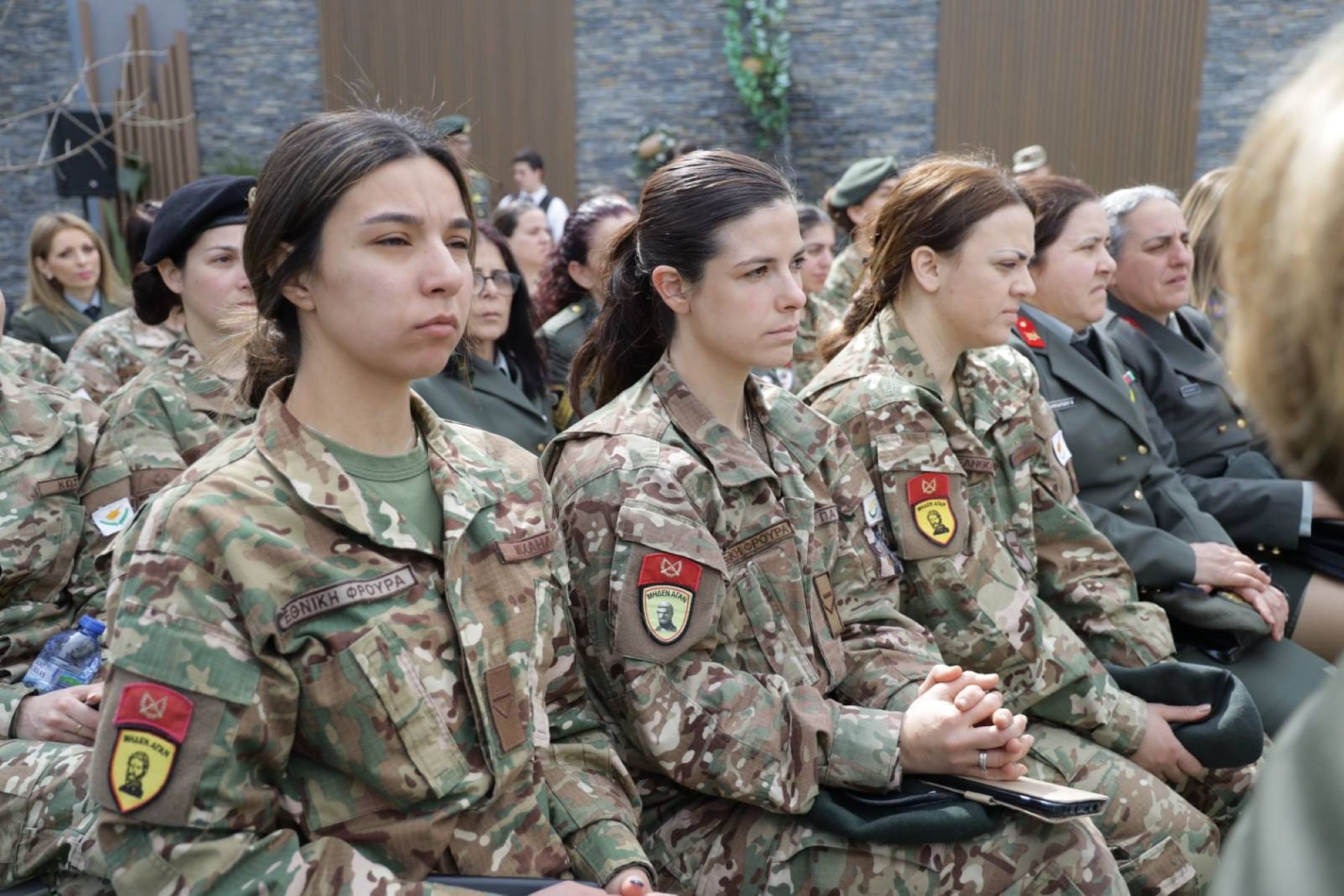The National Guard is fully prepared to welcome female volunteers, Defence Minister Vasilis Palmas confirmed on Thursday, as discussions on the voluntary enlistment of women continued in the House defence committee.
Currently, only women who serve as officers or contractual soldiers can join the army. If approved, the new law will allow women from the age of 18 to voluntarily enlist, marking a significant shift in Cyprus’ military policies. The initiative aims to provide equal opportunities for women to contribute to national security alongside their male counterparts.
The committee reviewed the legislation governing the initiative, with members expressing their opinions ahead of further talks scheduled for March 20. Palmas expressed optimism that the bill would progress smoothly and receive parliamentary approval.
“I am optimistic that we can move this issue forward, have it go to the plenary and become state law,” the minister said.
When asked whether the plan to allow voluntary enlistment for women by May was realistic, he stated that its feasibility depended on the outcome of discussions in the coming weeks.
Palmas also assured that the necessary infrastructure is “absolutely ready” to accommodate female recruits, ensuring they have the same conditions and support as their male counterparts.
Chairman of the defence committee and Edek leader Marinos Sizopoulos confirmed that lawmakers had received clarifications from the ministry of defence and the general staff on the bill’s content. He noted that members had submitted their questions and proposals, which they expect to be considered before the final discussion next week.
He outlined a timeline in which the finalised bill will be reviewed in March, to refer it to parliament before Easter. This would allow authorities to implement recruitment plans without delay.
Disy MP George Karoulas stressed the importance of increasing human resources within the National Guard while ensuring gender equality. However, he warned that the bill must be structured carefully, in line with the existing conscription model for men.
“We identified many issues, ambiguities and gaps in the bill that could potentially endanger this important effort,” he said. Karoulas called on the defence ministry to revise the bill to address concerns constructively.
“Our defence and security carry responsibility and deserve due seriousness,” he added, urging a thorough assessment of the proposal’s necessity and benefits for the National Guard.
It is recalled that the government initially approved the legislative amendment in September 2020, with the cabinet formally adopting it later. Palmas confirmed that the bill is now in its final stages and awaits parliamentary approval.
Beyond boosting troop numbers, the proposal seeks to highlight women’s vital role in defence. Female recruits will have opportunities in combat units, operational missions, and specialised fields such as cyber defence, medical services, and military diplomacy. Authorities hope this step will modernise the National Guard and encourage broader female participation in the armed forces.






Click here to change your cookie preferences